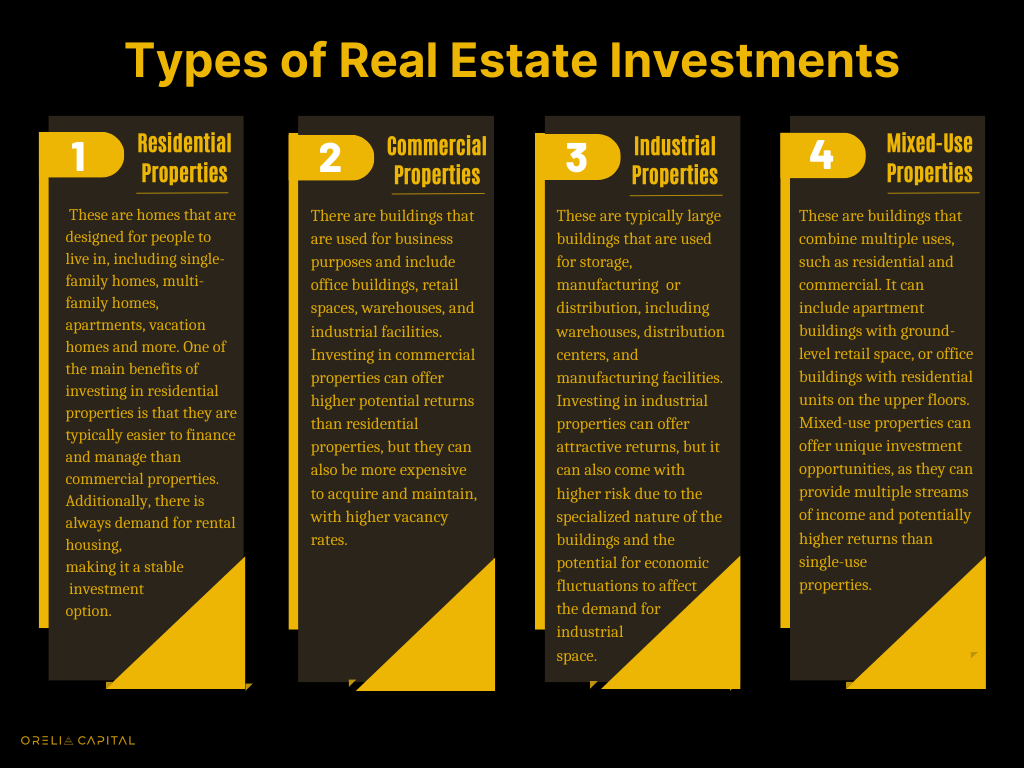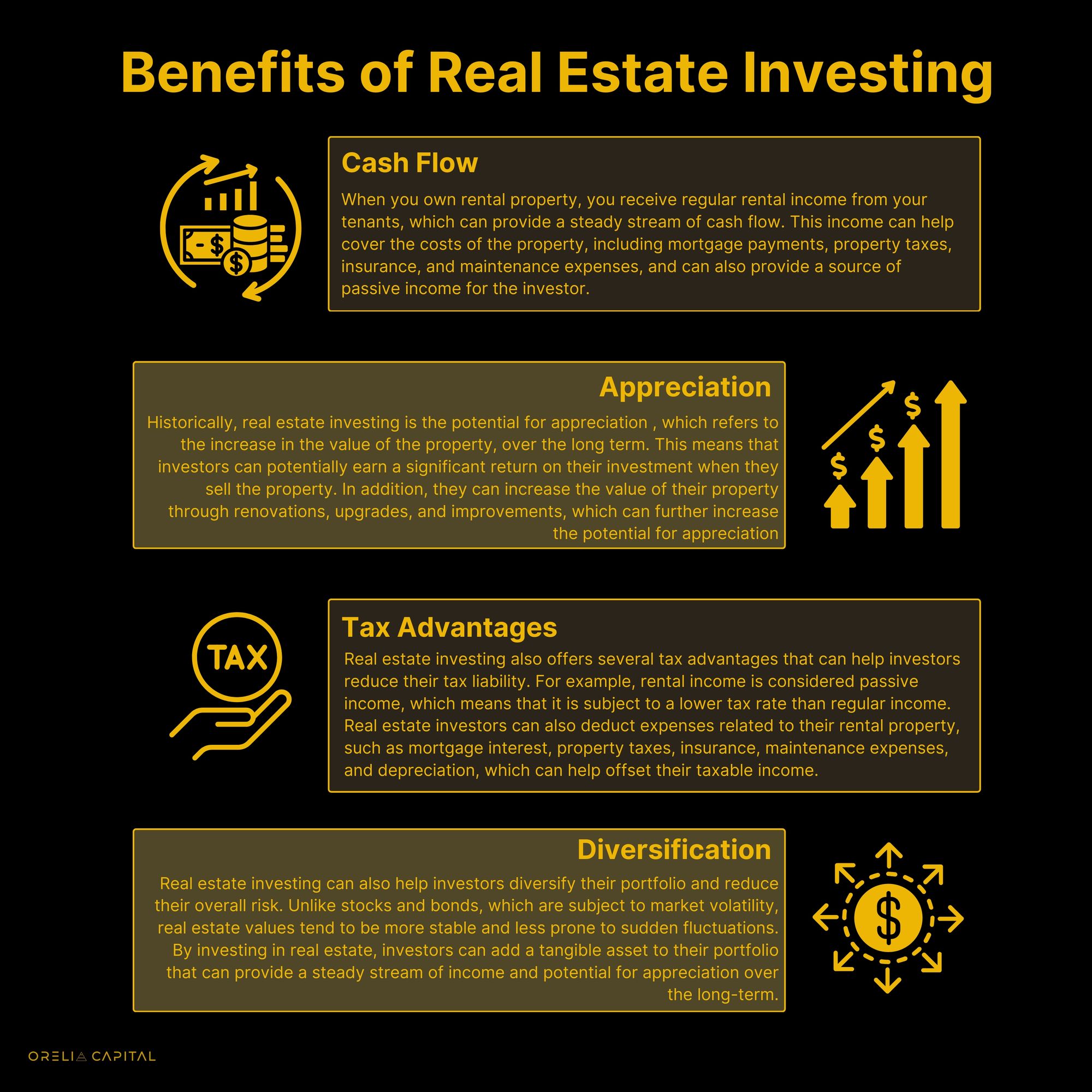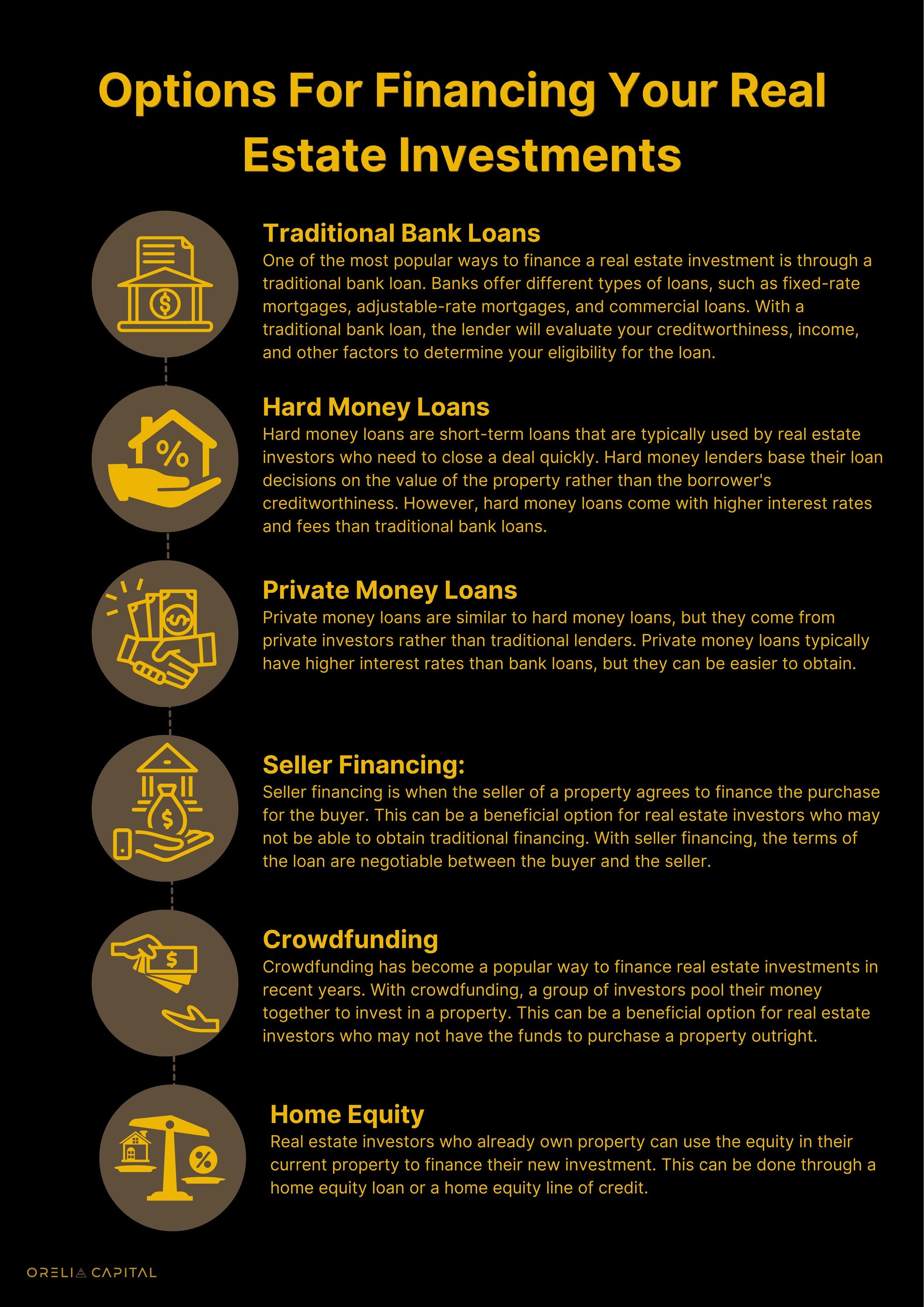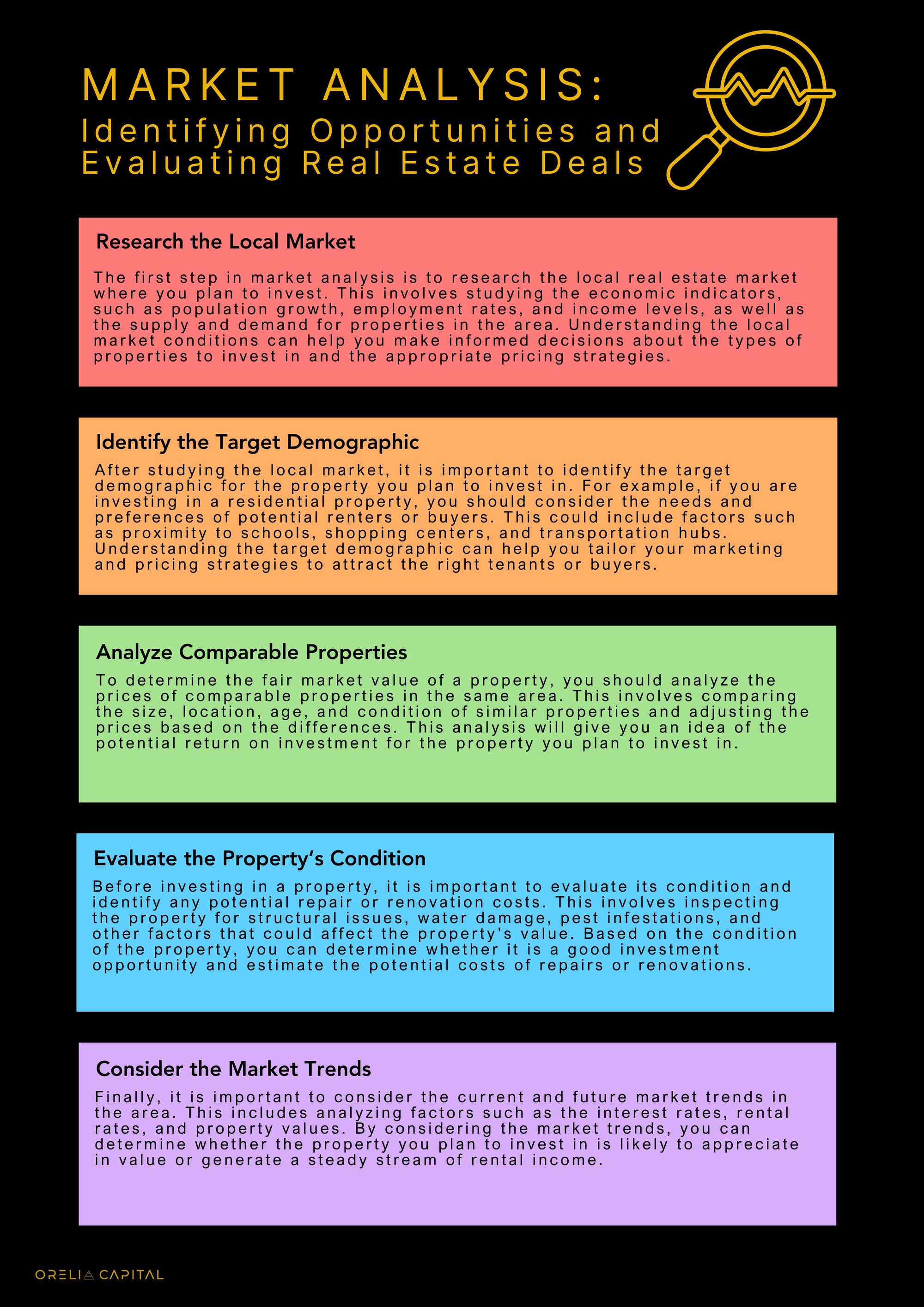Exploring the World of Real Estate Investment

Real estate investing is the act of acquiring, owning, managing, renting, and/or selling real estate properties to earn a profit.
Real estate investing can take many forms, such as:
- Buying and holding rental properties,
- Flipping houses for a quick profit, or
- Investing in real estate development projects.
The concept of real estate investing is based on the principle of supply and demand. As the population grows, the demand for housing increases, and the land supply becomes limited, increasing real estate prices over time. This makes real estate an attractive investment option, especially for long-term investors looking for steady cash flow, appreciation in property value, and potential tax benefits.

Real Estate Investment Trusts (REITs): An Overview of this popular investment option
REIT stands for Real Estate Investment Trust, a type of investment vehicle allowing individuals to invest in real estate without actually owning the physical property.
Here are some key points to know about REIT investing:
- REITs own, operate, or finance income-generating real estate properties.
- They typically invest in various property types, including office buildings, shopping centres, apartment complexes, hotels, and warehouses.
- By law, REITs must distribute at least 90% of their taxable income to shareholders as dividends, which can provide a consistent income stream for investors.
- They are traded on major stock exchanges, providing liquidity and ease of buying and selling for investors.
- There are two main types of REITs: Equity REITs and Mortgage REITs. Equity REITs own and operate properties, while Mortgage REITs invest in real estate debt and mortgage-backed securities.

Risks Associated with Real Estate Investing: Understanding the Potential Pitfalls
- Market risk: Real estate markets can be cyclical, with periods of growth and decline. Economic factors, such as interest or employment rate changes, can impact demand for properties and rental rates. Investors must be prepared for market fluctuations and have a long-term investment strategy that can withstand downturns.
- Property risk: Property-specific risks include damage from natural disasters, environmental hazards, or unexpected repairs. In addition, there may be unexpected costs associated with maintenance, tenant turnover, or property management.
- Financing risk: Real estate investments are often highly leveraged, with a significant amount of debt used to finance the purchase of a property. If interest rates rise or the investor experiences cash flow problems, they may be unable to keep up with mortgage payments or be forced to sell the property at a loss.
- Tenant risk: Rental properties depend on reliable tenants who pay their rent on time and maintain it. If a tenant defaults on rent or damages the property, it can significantly impact cash flow and profitability.
- Legal risk: Real estate investing involves a range of legal considerations, including property ownership and management, tenant rights and responsibilities, and tax implications.
To mitigate these risks, investors can take several steps. Thorough due diligence, including property inspections, market analysis, and financial analysis, can help identify potential risks before investing. Investors can also diversify their portfolio by investing in different types of properties in other markets. Finally, having a contingency plan in place for unexpected events, such as a tenant default or property damage, can help mitigate the impact of these risks on the investment.

Real Estate Investing for Passive Income: How to Build a Stream of Income with Real Estate
Here are some tips on how to build a passive income stream with real estate investing:
- Choose the Right Property: Look for properties that are located in high-demand areas with strong rental markets. Properties that require minimal maintenance and upkeep are also ideal, as they will require less time and resources.
- Use Leverage: Using leverage (responsibly) can help you generate more passive income from real estate investing by borrowing money to invest in real estate, acquire more properties and create more cash flow.
- Invest in Real Estate Investment Trusts (REITs): Real estate investment trusts (REITs) allow you to invest in real estate without owning the physical property yourself.
- Use a Buy-and-Hold Strategy: A buy-and-hold strategy involves purchasing a property and holding onto it long-term rather than flipping it for a quick profit. By renting out the property and collecting rental income, you can generate a consistent stream of passive income over time.
- Consider Short-Term Rentals: Short-term rentals, such as Airbnb or VRBO, can be a great way to generate passive income from real estate. By renting out your property short-term, you can charge higher rates and generate more revenue than a long-term rental.
- House Hacking: House hacking is a popular strategy for young investors. It involves purchasing a multi-unit property, living in one unit, and renting out the others. This approach allows you to generate rental income, cover your mortgage, and build equity while living for free or at a reduced cost. House hacking can be a great way to start real estate investing and learn the ropes.

Exit Strategies: How to Maximise Profits and Exit Your Real Estate Investments
There are several exit strategies that real estate investors can use to maximise their profits and minimise their risks. Some of the most common exit strategies include:
- Selling the Property: Investors can sell their property to an individual buyer or another investor. When selling a property, investors must consider factors such as market conditions, demand for the property, and the potential for appreciation. Selling the property at the right time and price is crucial to maximising profits.
- Refinancing the Property: Refinancing allows investors to take out a new loan to pay off the original mortgage. This can help investors to reduce their monthly mortgage payments, free up cash flow, and access equity in the property. Refinancing can be a great way to maximise profits, especially if the property has appreciated in value.
- Leasing the Property: Investors can lease their property to a tenant or a business and generate income from rent payments. This can help to offset the costs of ownership and generate a steady stream of income. Leasing the property can also be a great way to build equity and increase the property's value over time.
Conclusion
In conclusion, real estate investing can be a powerful tool for building wealth and generating passive income. Investors can make informed decisions and maximise their returns by understanding the various types of real estate investments, financing options, and market analysis strategies. REITs and crowdfunding have made real estate investing more accessible to a broader range of investors. It's important to remember that real estate investing, like any investment, carries risks and requires careful consideration and planning. However, for those willing to do their homework and take a long-term view, real estate investing can offer a path to financial freedom and security.

We hope you enjoyed this edition of our newsletter. If you found it helpful, please consider sharing it with others who might benefit from this information.
At Orelia Capital, we believe that feedback is a gift. Your feedback can help us improve our content and provide more value to our readers.
